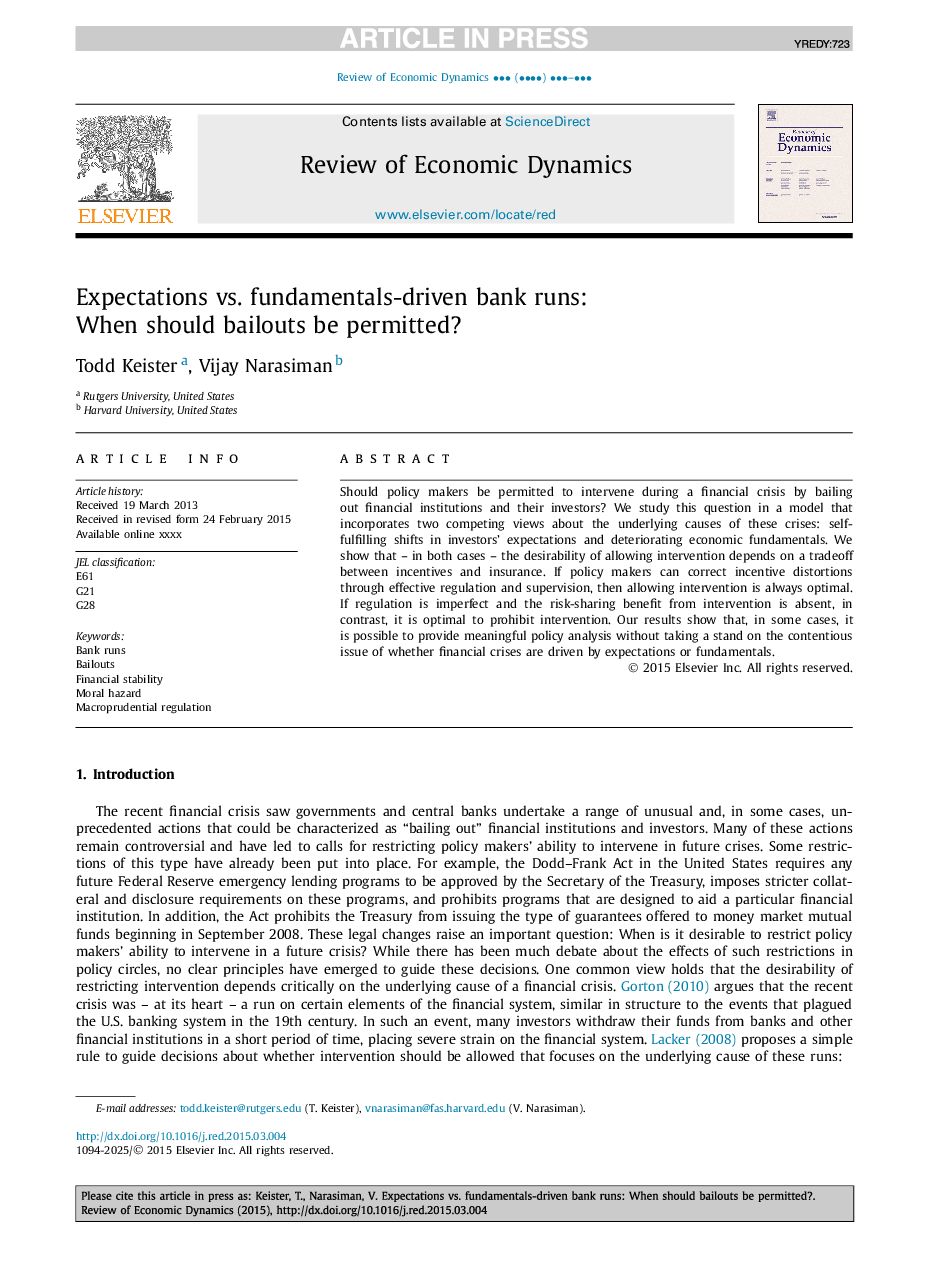| Article ID | Journal | Published Year | Pages | File Type |
|---|---|---|---|---|
| 7388267 | Review of Economic Dynamics | 2016 | 16 Pages |
Abstract
Should policy makers be permitted to intervene during a financial crisis by bailing out financial institutions and their investors? We study this question in a model that incorporates two competing views about the underlying causes of these crises: self-fulfilling shifts in investors' expectations and deteriorating economic fundamentals. We show that - in both cases - the desirability of allowing intervention depends on a tradeoff between incentives and insurance. If policy makers can correct incentive distortions through effective regulation and supervision, then allowing intervention is always optimal. If regulation is imperfect and the risk-sharing benefit from intervention is absent, in contrast, it is optimal to prohibit intervention. Our results show that, in some cases, it is possible to provide meaningful policy analysis without taking a stand on the contentious issue of whether financial crises are driven by expectations or fundamentals.
Related Topics
Social Sciences and Humanities
Economics, Econometrics and Finance
Economics and Econometrics
Authors
Todd Keister, Vijay Narasiman,
